The Seattle Visionary No One Talks About
Bill Gates Sr. had the courage to lead by getting out of the way
Seattle, late 1960s: As Bill Gates Sr. recounted to a packed—and rapt—Maryland auditorium in 2009, things weren’t going so well in the psychiatrist's office. In fact they were going terribly; worse than the one Parent Effectiveness class he and his wife, Mary, had taken, even though the doctor had come very well-recommended.
After another emotionally draining round of back-and-forth with their son, Bill and Mary were at their wit’s end. They slumped in their seats, their hearts heavy. They were both brilliant and accomplished leaders, known for never throwing in the towel and always being able to discern and facilitate a creative solution to any problem, no matter how seemingly intractable. Yet here, now, their weary eyes said: This son of ours is insoluble.
As for their teenage son’s accomplishments, Bill Jr. had read a gazillion books, become one of the world’s leading gunslingers in the wild wild west of computer programming (and even wilder west of hacking and anti-hacking), nearly attained the rank of Eagle Scout—and driven his parents crazy with intermittent worry, fury, and frustration.
Bill Sr. especially was forlorn. Right or wrong, he'd mentally assumed most of the burden for having raised such a boy; his namesake, no less. His position was: The buck stops with me. The mother-daughter relationship was supposed to be the killer, yet Mary had done a superlative job raising their daughters, both of whom were brilliant, curious and hard-working, like Bill Jr., but at the same time comprehensible, equable and delightful. By comparison, Kristi and Libby were Hindu goddesses of dutifulness & cheerful serenity; Bill Jr. was Shiva, The Destroyer.
Then the psychiatrist threw the parents an apparent lifeline. “Let’s step outside for a moment.”
Bill Sr. regarded Mary quite differently now. His eyes flickered with hope. His body language said About time! His relief was palpable as he and Mary stood and followed the doctor out into the adjacent, empty reception area.
However, once outside, the psychiatrist said: “Give it up.”
“It’s like he’d hit us with a two-by-four,” Bill Sr. explained. "We thought he’d tell us we were right, and he had a plan.”
He did have a plan. It just wasn't what the parents expected to hear. Or wanted to hear. “You’ll never win,” the shrink added. “Your son is a force of nature. You need to accept this and find a way to move on.”
It wasn’t easy, but the parents found a way…to provide love and support while letting Bill Jr. find his own way.
Find it he did: in 1999, at age 43, he became the first person in history worth $100 billion.
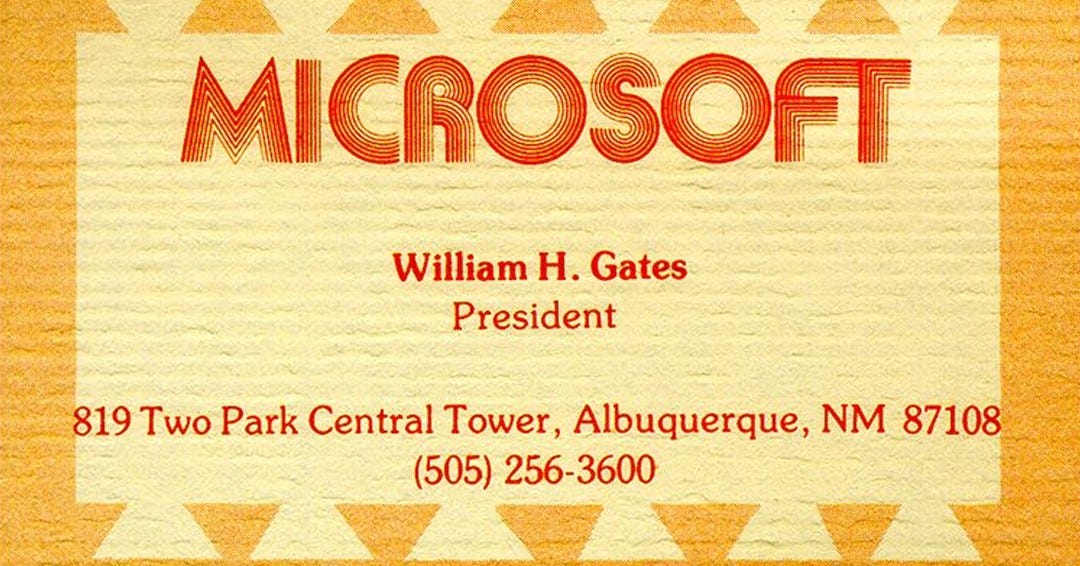
We’ve all heard the expression: “Lead, follow, or get out of the way.” But it’s a false construct. The leadership quiver has many arrows. A great leader knows when to use which arrow. Getting out of the way (it goes beyond delegation) is especially hard, no matter the mission. It requires lots of wisdom, humility, and courage. Bill Sr. had all three, in spades. He was, to use one of his favorite expressions, “an absolute ten-strike.”
I first met Bill Sr. 38 Junes ago, in 1985, when, as Managing Partner of Shidler McBroom & Gates, he’d signed off on his partner Steve Berman’s rare flawed recommendation to hire me as a summer legal associate after my third year in the University of Chicago’s JD-MBA program. Compared to DC (my birthplace) and The Windy City, The Emerald City was a sleepy town. The first Costco “warehouse” had only opened in 1983, Microsoft wouldn’t go public for 9 months, Howard Schultz’s first Starbucks “coffeehouse” didn’t debut until 1987, Nordstrom hadn’t taken off, Jeff Bezos wouldn’t move there until 1994, to sell books out of his garage, Expedia wouldn’t launch until 1996, and Boeing wouldn’t tap Alan Mulally as CEO until 2001, to lead the 80-year old anchor of Seattle’s economy through the post-9/11 crisis, to its best results, ever. The travel guides I’d consulted highlighted things like Seattle’s penchant for ticketing jaywalkers, its love of brew pubs and Swedish food, Pike Street Market, Mt. Ranier, and of course the fact that it rained most days.
A quarter of a century later, Seattle was on a tear. It’d become a juggernaut. Not since Florence rocketed to the top of global city-states in the 15th century, based on banking, or Krakow’s food-preserving salt mines catapulted it to the top of Europe’s Power rankings in the 17th—had any one city come so far, so fast. Billionaires (let alone millionaires) seemed to be coming out of the woodwork. No city (not even in China) had more tower cranes. The most proactive of parents no longer eyed New England’s Phillips Exeter, Maryland’s Landon School, or Chicago’s Lab School…but set their sights on Lakeside High, incubator of billionaires.
Seattle’s clout still astonishes. More than seven in ten of the world’s computers run on Microsoft operating systems (1.4 billion use just Windows 10 or 11). More than 10,000 Boeing planes (with almost 6,000 more on order) fly 70% of global long-haul passenger traffic, and 90% of cargo. Some 35,000 coffeehouses, tens of thousands of hotel rooms, and miles of shelf space in grocery and convenience stores purvey oceans of Starbucks’ espresso, skimmed-milk chais and other provisions. “Travel technology” behemoth Expedia employs nearly 17,000 people to rack up nearly $12 billion/year on its array of sites from Expedia to VRBO. Having crushed the likes of Saks 5th Avenue & Neiman Marcus as it grew to 350+ stores, while earning the “top fashion retailer” ranking from Women’s Wear Daily, Nordstrom is still revered. Costco’s 800 airplane-hangar-sized stores sell high-quality toothpaste and toilet paper by the truckload. And Amazon sells (and now delivers) just about everything under the sun, propelled by its army of 200 million Prime members; and though next-door neighbor Microsoft is closing in, it’s still the top Cloud services provider.

How did Bill Sr. contribute to Seattle’s ascendance?
There haven’t been that many really impactful father-son duos in history, but of the handful, their effects still reverberate: Isaac & Jacob; Philip of Macedon & Alexander the Great; two U.S. Presidents named George Bush. As for me, I think the closest Bill Sr. & Bill Jr. analogue is John Adams & John Quincy Adams. Born in the aptly named town of Braintree, Massachusetts, both Presidents were enormously influential in the early development of a great power. Trying to rank their significance is silly. The only irrefutable fact is biological: John Quincy would not have existed had it not been for his father.
The same holds true for Bill Jr. While he’s had a profound effect on Seattle and the world at large, a case could be made that his father ranks right up there with him. (Nb: always humble, Bill Sr. never would’ve made such a claim, or countenanced it.) Beyond the objective and irrefutable, one subjective metric has special evidentiary weight…Namely, the son's beautiful Foreword to his father’s 2009 memoir, Showing Up for Life—Thoughts On The Gifts Of A Lifetime:
Dad, the next time someone asks you if you’re the real Bill Gates, I hope you say “Yes.” I hope you tell them that you’re all the things the other one strives to be.
Here’s a brief summary of Bill Sr.’s accomplishments:
As a behind-the-scenes Obi-Wan Kenobi (often at the family dinner table), he was instrumental in the early navigation of Microsoft, still one of the planet’s leading & most influential organizations (in addition to its operating systems dominance, it founded Expedia, it owns LinkedIn, and is a major investor in and the exclusive Cloud provider for OpenAI’s ChatGPT, one of the most disruptive software technologies ever);
He envisioned and played a key role in the stewardship of the Bill & Melinda Gates Foundation, the world’s first or second largest charitable foundation (depending on stock valuation), which has done so much to alleviate global suffering and improve education;
He also envisioned and played a key role in the stewardship of TechAlliance, a consortium of State-wide leaders and institutions whose mission of advancing excellence in research, education & entrepreneurship has improved the lives of countless people from all walks of life, not only in Washington State but also the world at large;
He was deeply involved in a vast array of public service activities, most notably helping the University of Washington become a global leader in cutting-edge research and education;
He was instrumental in Howard Schultz’s purchase and re-imagined overhaul of the coffee colossus, Starbucks;
He served on the board of Costco, one of the world's most innovative and successful retailers; and
He helped Shidler McBroom & Gates’s handful of lawyers catalyze what would become the world’s largest law firm, KL Gates.
Against all this, what did Bill Sr. himself say was his greatest achievement? “Marrying well.”
What did he say he was most proud of? “My children.”
How did Bill Sr. amass such an impressive list of accomplishments?
Best I can tell…by following eight principles that he learned while growing up.
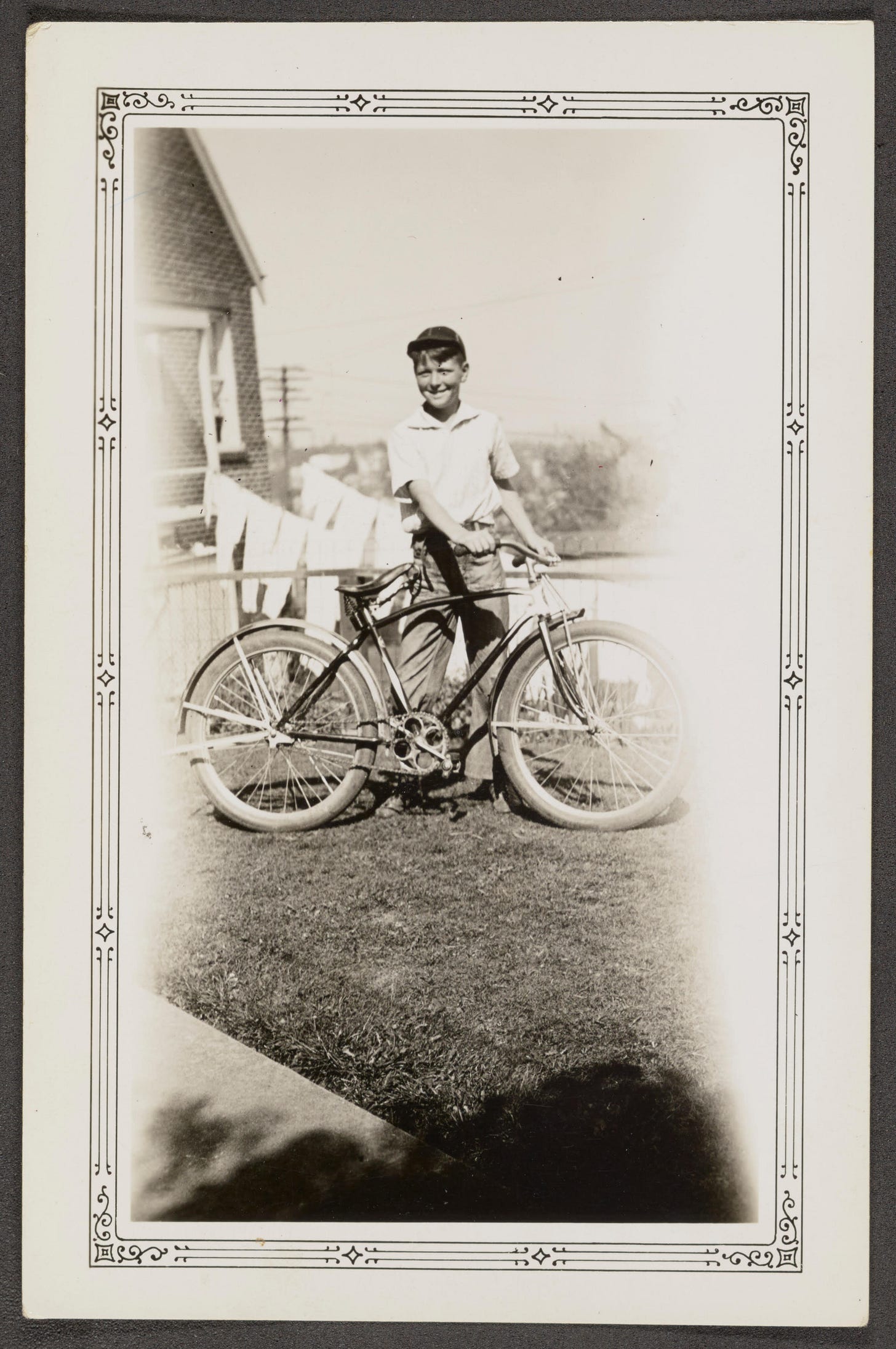
Principle 1. "Show up.”
Bill wasn’t into participation trophies or talking about showing up. For him, showing up meant showing up in person—suited up, ready to play ball! Not sitting on the sidelines, but entering Teddy Roosevelt’s arena…
Bill credits many people for what he called his “obsessive showing up,” but he singled out three in particular. His mother Lillian “showed up for a long list of community activities that included everything from picnics to fund drives.” His father (also Bill) “sold newspapers in the freezing cold streets of Nome, Alaska, to help his family get by while his dad went panning for gold;” then, in 8th grade, quit school to help support his family. While Bill Sr. credits his entire Bremerton neighborhood, he was especially influenced by the Gates’s next-door neighbor, Dorm Braman, who though he never graduated from high school, went on to be Mayor of Seattle, then Assistant Secretary of Transportation (in the Nixon Administration). In addition to the inspiring rags-to-riches role-modeling, as Scoutmaster of Troop 511, Braman mentored Bill on his way to Eagle Scout…the Oath for which includes a set of formative principles that guided his behavior for 80 years: “I will conduct myself in a manner fitting and proper for one of this high rank. I will do my best, to give leadership in service whenever I can.”
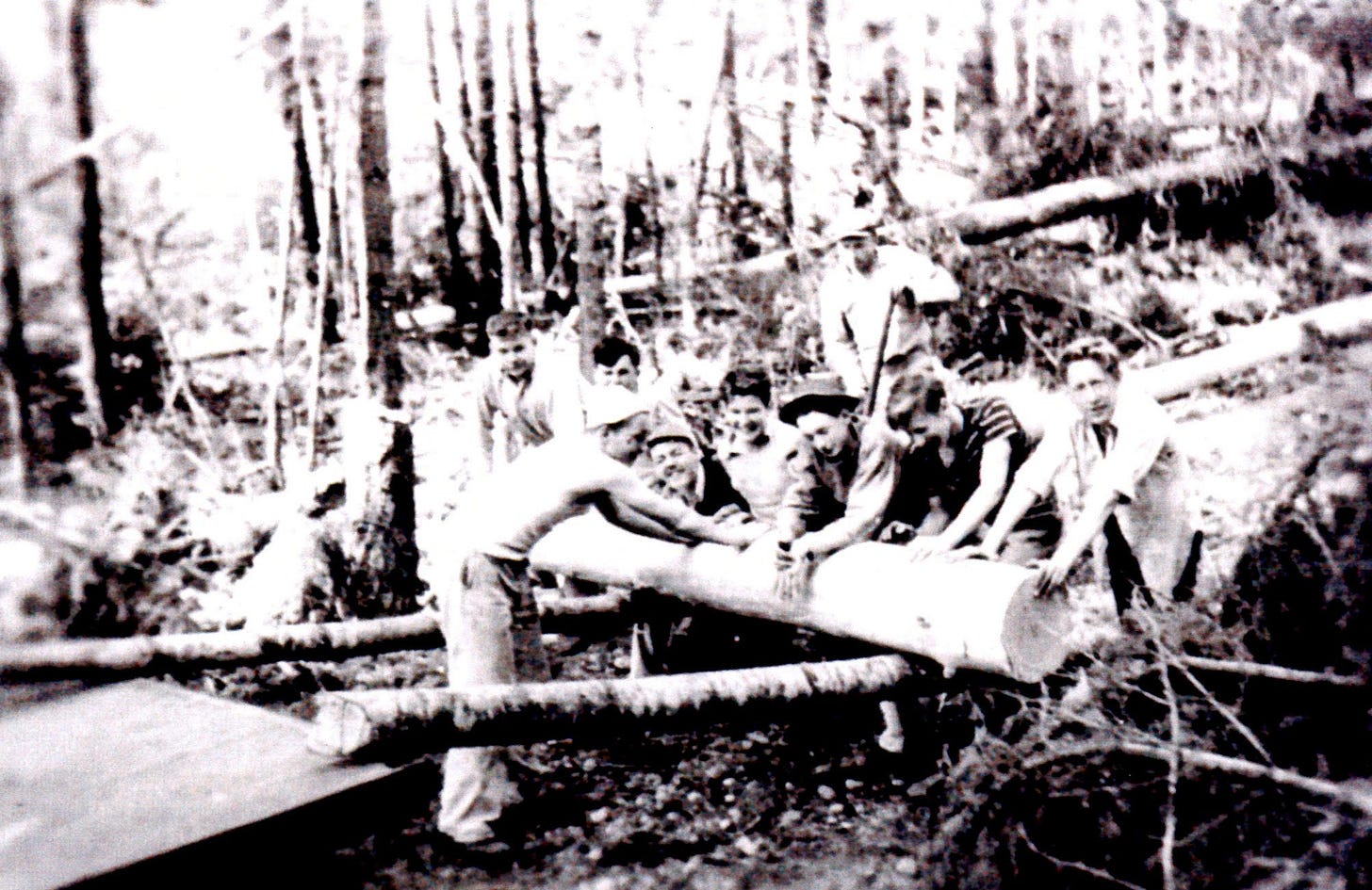
Principle 2. “We’re all in this together.”
Bill called this principle “my favorite axiom.” He learned to think and act in a highly collaborative way from his parents, sister, pastor, high school teacher & basketball coach (Bill would eventually hit 6’7,” which is partly why friends and family typically referred to him as “Big Bill”)…and, again, Dorm Braman…who led a working together masterclass for three consecutive summers during the late 1930s. It was grueling work…that included clearing gnarly-rooted terrain, felling huge trees by hand, sawing them precisely using two-man crosscut saws, then hand-peeling and planing them smooth & even more precisely using hand-held adzes. In Showing Up, Bill recounts how 20 boys in their early teens, plus Dorm and his assistant Scoutmaster, “worked all day, cooked our meals over open fires, and slept under the stars…This adventure proved to us that if we worked together long enough and hard enough anything was possible.” The result was the Sundown Lodge, which would’ve impressed both Ansel Adams and Frank Lloyd Wright.
Bill’s “we” was expansive and big-hearted, micro and macro. It’s no surprise he and Nelson Mandela got along so well. Mandela often talked of how Zulus greeted one another: “I see you,” which expresses the belief that every human is of infinite worth. Bill had always conducted himself similarly—making sure to remember everyone’s name and address them with equal dignity, whether they were a chief judge or a golf caddy. But he extended his I-see-you philosophy well beyond the Seattle area: and not just to the 8 billion people alive today, but the 110 billion who’ve preceded us (“on whose shoulders we stand,” as he often said), and—hopefully—the hundreds of billions who’ll succeed us.
What Bill called the “public will” is a corollary principle. As he described it in his 2008 Whitman College Commencement Address:
What I am getting at is what I believe to be the real substance of democracy…It’s an abstract concept…You can’t touch it, or take a photograph of it, or buy it at the store.
But when important things happen, it’s because the public had the will to make them happen. And when nothing happens, it’s because the public isn’t willing…
It is the sum total of every person’s individual, deliberate acts of citizenship. You join a club. You read a newspaper. You sign a petition. You write a letter. You vote. You make a contribution. You have a friendly argument. If those clubs and newspapers and petitions and letters and votes and contributions and arguments predominantly point in the same direction, that’s public will.
Public will is when the right thing to do becomes consensus and people generally start expressing the convictions they share in everything they do…
So I don’t care if you carry a banner or if you stand near the back. You can yell into a megaphone if you like, or you can listen carefully if that’s more your style. You don’t need a soap box to be a good citizen. You just need to be part of the public will to make life on this planet a little bit better.
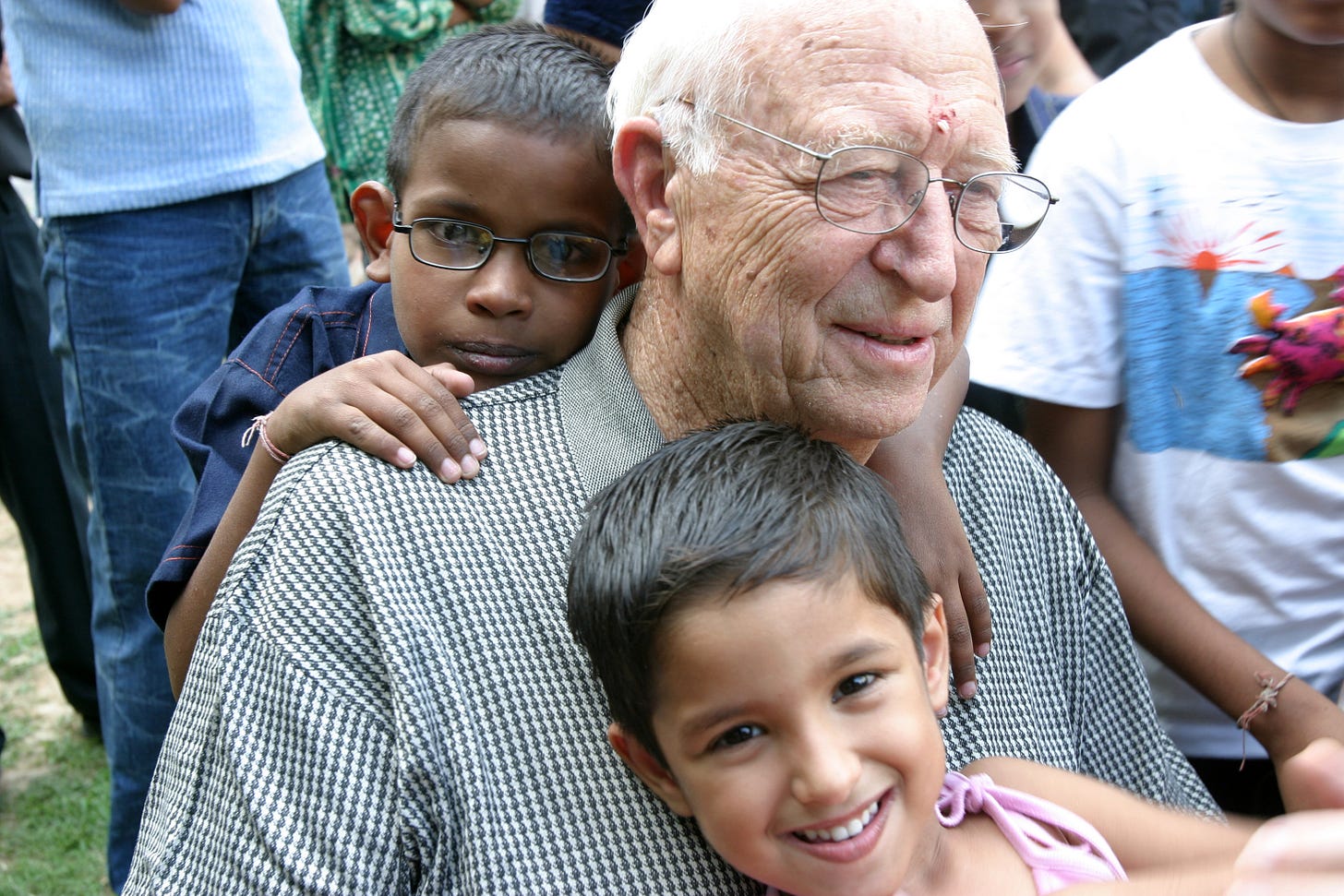
Principle 3. Don’t be wasteful, do be generous.
Bill Sr. loathed wasting time. He led “thought leader” Graham Duncan by decades; the latter’s concept of “time billionaires” is all the rage these days. The father of history’s first centi-billionaire didn’t agree that “time is money.” He knew that time was more precious. That’s why he and his equally brilliant and punctual wife, Mary, taught their three children to set their watches at least 8 minutes fast (preferably 10)…so as not to be late. Tardiness or otherwise squandering people’s time was a sign of disrespect, sloppiness, and inefficiency. Though very amiable by nature, Bill took a dim view of people who showed up late to meetings he chaired. Even if some VIPs hadn't yet arrived—he’d start without them.
The apple didn’t fall far from the tree in this respect. Bill Jr. was famous for saying in Microsoft staff meetings: “By all means speak up, but you’d better do so in real-time and at a high bandwidth.”
I’ll never forget the time one of my clients wanted a “brief word” with Bill. “Just to meet him.” Bill was more than happy to carve out a few minutes, gratis. But when the client kept yakking…going on and on…I could see Bill's patience wearing thin. I didn’t know what to do. Bill did. He politely let the man’s palaver run its course, but the moment the client stepped outside into the hallway, Bill touched my sleeve, held me back a moment and, towering over me, looked down as he said: “You do know I’m going to bill him for my time.” (I half expected to receive my pink slip that afternoon.)
Bill’s zeal for thrift and conservation extended to all of life's resources. His father influenced him most in this regard.
My earliest memory of Dad is an image of him walking home from work every night picking up pieces of coal he’d find in the alley. They had fallen off a truck delivering coal to our neighbors. In those days people used coal to heat their houses…
Bill wasn’t fond of avarice and said the 4-letter word he most disliked was “mine.” While many people shaped his way of thinking, his sister, Merridy, who was seven years older, played a central, inspirational role. As Bill tells it in Showing Up, while he loved and greatly respected his father, he could also be parochial in certain ways, like how he “didn’t think girls needed to know how to drive.” So his sister never learned. Yet as soon as Bill turned 16, and got his driver’s license, Merridy spent $85 (a huge sum in 1941) and gave her not-so-little younger brother the best birthday present he could’ve imagined: a 1930 Model A Ford roadster, complete with a nifty rumble seat. “Merridy’s generosity—she had been denied the opportunity to drive herself—was something I have never forgotten.”
Bill often paired “unconscionable” and “egregious” in lamenting the chasm between the world’s Haves and Have-Nots. He liked quoting Luke, from the New Testament, in part because it was one of JFK’s favorite passages: “To whom much is given, much is expected.” He often talked about how almost all U.S. Citizens won “the birthright lottery,” and encouraged us all to reflect on how different our lives would be had we been born, in my case, not at Columbia Hospital for Women, just down the street from The White House, and educated not at Landon School, akin to Lakeside…but in a rural shanty in Colombia, or as a young woman reading in secret at night in Afghanistan’s Helmand Province…which is why…as the father of history’s first $100 billion-man…ironic and dissonant only to those who never met him…Bill was such an impassioned proponent of the Estate Tax…because he felt it helped at least a little to democratize the birthright lottery…as a financial manifestation of inclusion.
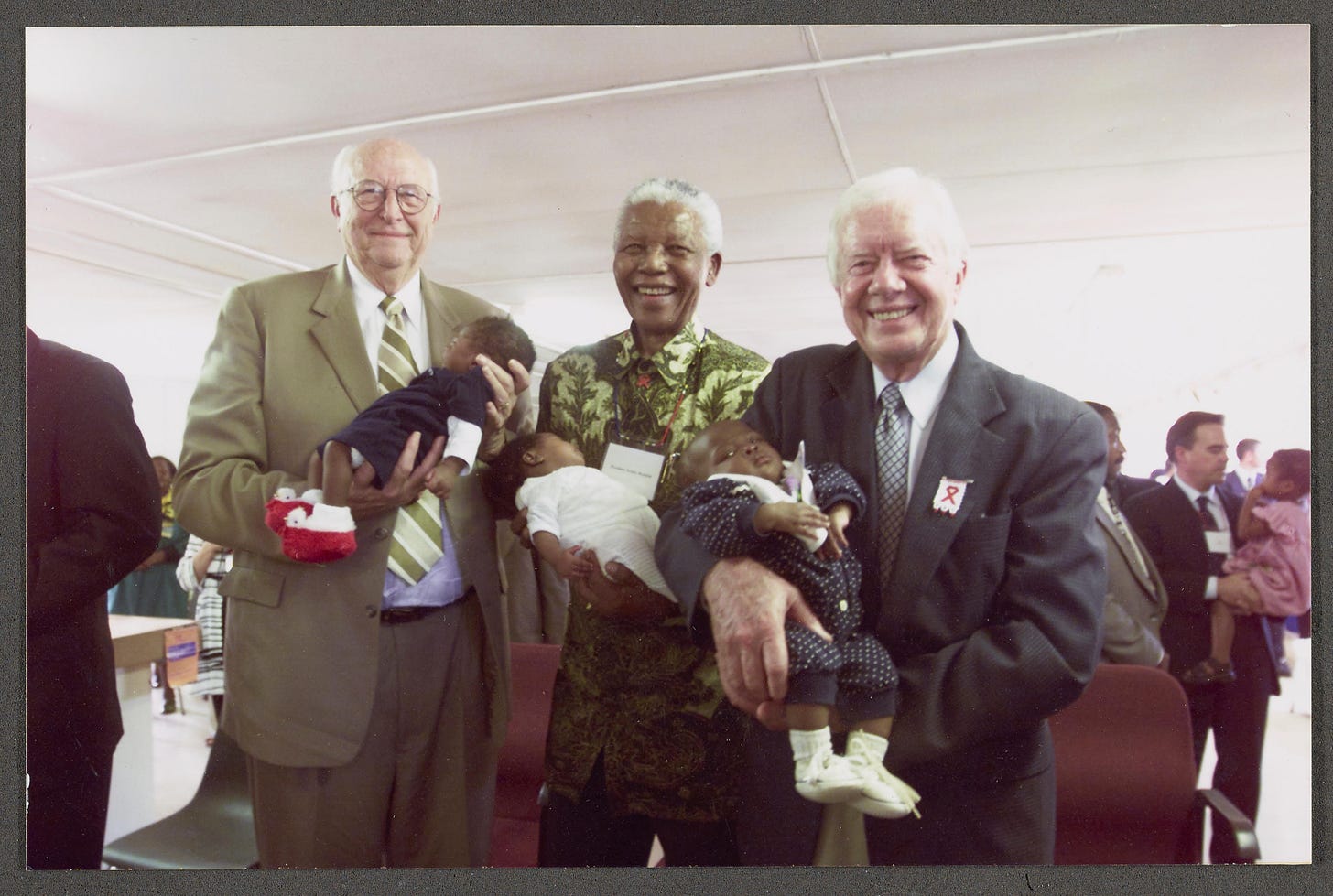
Bill wasn’t anti-capitalist. Not in the least. He felt that competition was key to “constructive progress,” and capitalism fostered competition.
The stories of Bill’s generosity are legion, but my favorite is how he disbursed the Microsoft IPO shares his son thoughtfully set aside by way of thanks to his father’s law firm. Some in his small firm felt only the attorneys should have access to the 18,000 shares, at what everyone felt for sure was a rock-bottom Offering Price: $21/share. Some partners argued that only they, the partners, should be able to participate in the predicted windfall. As managing partner, Bill listened to his partners’ opinions, but in the end insisted that everyone (other than himself) be allowed to participate in the drawing to buy one of 18 blocs of 1,000 shares…from the most senior partner to the most recently hired receptionist. (He’d agreed to the blocs as a concession to his partners, as some felt the $21,000 price tag would limit the appeal.)
Twenty-three people drew lots. When a secretary and a few of the other 17 winners couldn’t swing the $21,000 cost of an entire bloc, Bill allowed them to form a buying consortium—“democratizing the process,” in the words of Marty Smith, at the time an associate, as well as another lucky winner. Every $1,000 invested in Microsoft on March 13, 1986 (and held onto) is today worth $3.7 million.
Another story: when the firm won a large contingency case…and once again over the objections of certain partners, Bill insisted it donate 5% of its share of the payout to charity. Apples to apples (given the risk of the firm not prevailing, and the average Fortune 500 charitable rate of 0.9% of pre-tax income)—Bill’s tiny law firm probably donated 20 times what big corporations give today. That’s the sort of philanthropic leadership and role-modeling Bill Jr. alluded to in a Charlie Rose interview, and why he said in a Takeaway interview: “The impressive ones are the ones who are really sacrificing…I’m not foregoing meals or medicine to help others.”
Bill Sr. also role-modeled the notion that generosity is about more than just giving people money. The Bill & Melinda Gates Foundation wasn’t the beginning of his pro bono work, but a consummation of it. According to Marilyn Gist, Ph.D, who was the University of Washington’s Boeing Endowed Professor of Business Management for 15 years before being asked to launch and lead Seattle University’s Center for Leadership Formation: “Bill and Mary were near royalty in this town for decades because of their kindness, class, and commitment to service—all before their son came to fame.”
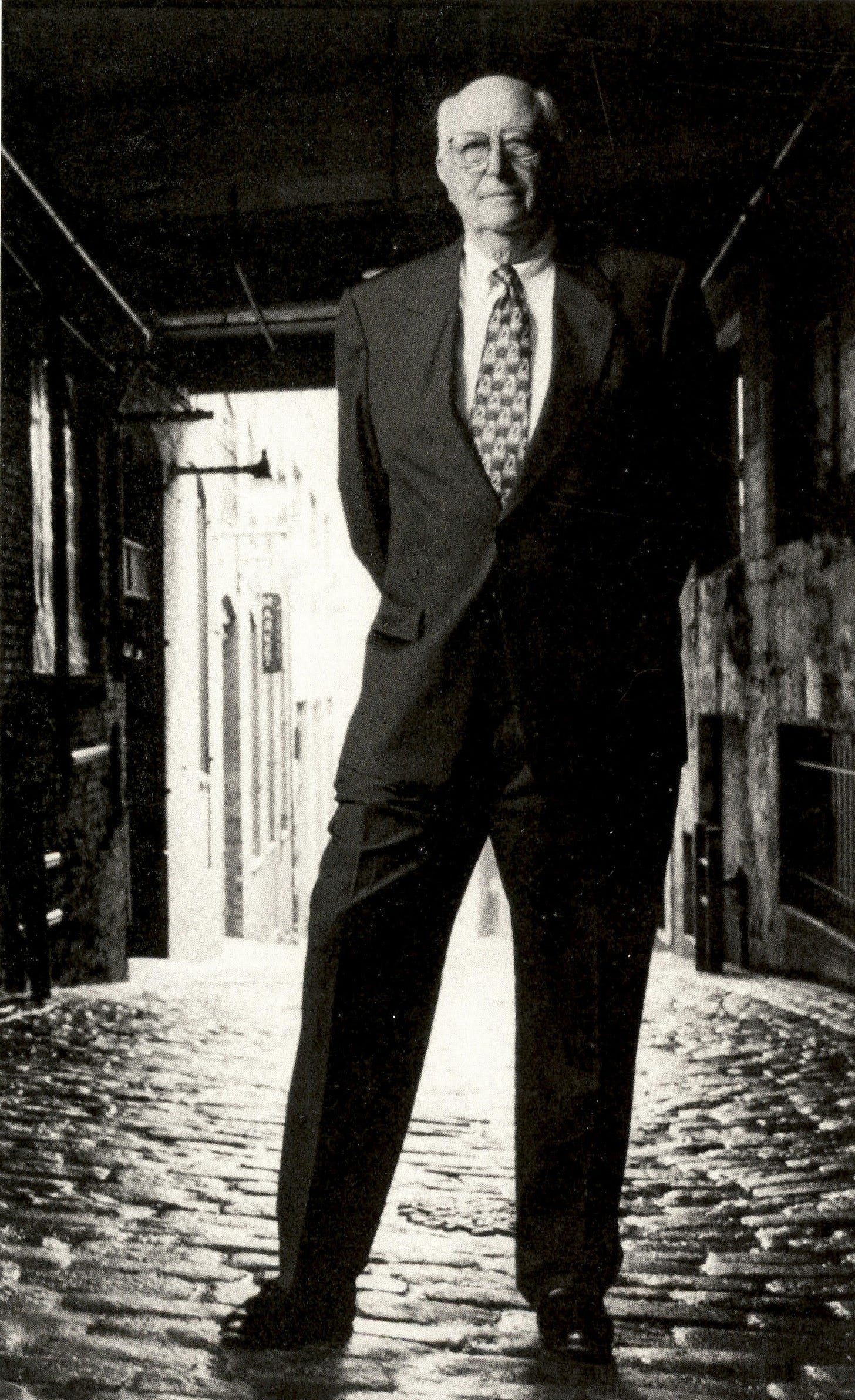
Principle 4. Use your power and influence for good.
Bill’s parents, sister, Scoutmaster Braman and others taught him early and often that power and influence were gifts that shouldn’t be hoarded, but shared, and put to good use. While the Bill & Melinda Gates Foundation is a staggering illustration of this principle, it’s just one of many. Another involves Starbucks, and, as I’ve enjoyed its wonderful coffee nearly every day for decades, I often think of Bill’s role in getting me going in each morning…
In 1987, at age 34, Howard Schultz was a man on a mission, powered by a compelling vision he’d had during a tour of Italy. Upon learning that the local coffee roaster for which he’d once worked was for sale, he felt the 6-outlet company, Starbucks, was the perfect vehicle to make his vision a reality: namely, a hip network of coffeehouses where baristas concocted myriad beverages and befriended the clientele, and where people congregated to work, relax, and socialize. But he faced two major problems. First, he needed to raise $4 million; in 60 days. Second, as Schultz tells it in Thanks for Showing Up in My Life: Lessons We Learned From Bill Gates Sr.…
While I worked hard to raise the money, one of [my own investors in the coffee shop I owned at the time], a powerful Seattle businessperson, was secretly preparing his own plan to buy Starbucks. When I found out, I was devastated. Not only did I feel betrayed, but I feared he would line up support from other prominent Seattleites…[M]y dream was at risk. I had no idea what to do.
Fortunately his lawyer did. After listening to Schultz, junior partner Scott Greenburg walked his client down the hall and into his managing partner’s office, where he met Bill for the first time. As Schultz relates: “I became very emotional as I explained my story.”
After hearing of Schultz’s predicament, Bill said the three should go for a short walk—across the street, to the office of Schultz’s double-crossing investor. The aspiring coffee kingpin continues:
What I witnessed next changed my life…
[Bill] stood in front of the man, in his own office, and called his behavior what it was, despicable. I was in awe of what [he] said next: “You are not going to steal this kid’s opportunity. You are going to stand down.” And to my amazement, he did. I went on to raise the money to buy Starbucks from its founders. One of my new investors was Bill Gates Sr.
This story stands out…because in that moment I witnessed what it means to lead with integrity, with values, and with heart…[As a] young entrepreneur [I learned] that leadership is about using your power and influence for good…[and] that people can succeed by doing what they believe is right.
Principle 5. Nothing offers a better return-on-investment than education.
Though Bill was involved in Good Works galore, he felt education was the master key. Reducing global polio cases by 99% via a quick, cheap jab or preventing malaria by spraying a penny’s worth of insecticide on mosquito nets are examples of amazing ROIs, but these and most every other other transformative, life-saving innovation are all traceable back to researchers, teachers and other educators.
Of so many examples, the best is his involvement with his beloved dual alma mater (BA, JD), the University of Washington (aka “U-Dub”). Having been immersed in education all my life (as a student, faculty, staff & board member, and the son and sibling of others much more active than I), I’m fairly well-credentialed to concur with the University of Washington’s official summary:
The William H. Gates family has an unparalleled record of service to the University of Washington, the community, the region and the world.
Between them, Bill, his wife, Mary, and their daughter Kristi served more than 40 years as Regents, and Libby is still serving. They and especially Bill Jr. have donated great sums, much of it to fund thousands of underprivileged student scholarships and some of the world’s best university-level research and teaching facilities…in public health, law, computer science…you name it. As chair, then honorary chair of two fundraising campaigns, Bill helped raise $9 billion. As a native of Washington, DC, when I applied to UW’s law and business schools in 1982, people called them “up-and-coming.” Forty-one years later, to say U-Dub has arrived is a massive understatement: according to the criteria of “doing the most to advance science, invent new technologies and help drive the global economy,” it was recently rated the world’s #1 most innovative public university, and #5 of all universities.
Principle 6. Going back on your word is never worth it.
Bill wasn’t by nature the judgmental sort, except from time to time as regards his own behavior. In Showing Up, he owned up to a time when he wasn’t true to his word, and how it nagged at his conscience his entire life. A friend told him something in confidence that was very personal in nature and really important to him. He asked Bill not to tell anyone, and Bill agreed, but “the story was so enticing I couldn’t resist the temptation to tell it to someone else…The result was that I lost a friend.”
But he learned a valuable lesson.
Principle 7. Praise plus constructive criticism is the rocket fuel of motivation.
As lawyering and especially litigation are intrinsically adversarial, Bill’s ability to transcend the combat mindset made him stand out. Leadership guru Marshall Goldsmith says leaders wear three hats: role model, coach, facilitator. Bill was all three; and, having been taught by his elders and family growing up, his special stock in trade was kindness.
He once assigned me some case. It could have been for Microsoft, as I did some licensing work. I just don’t recall. All I remember is that, as I was in a hurry to get to the King County YMCA for my regular afternoon pick-up basketball game, I cut some corners: though he’d told me to read and analyze a case, I didn’t; instead, I just read someone’s summary of the case. Basically, I was a lazy plagiarist. The next day, Bill called me into his office to discuss the “quality” of my work; alone. He shut the door, looked me in the eye and got straight to the point: “You didn’t read the actual case, did you?” At least I was honest: “No, Bill, I didn’t.” He didn’t yell or even frown, just handed my flimsy excuse for a memorandum back to me and said: “Read the case.”
Principle 8. Have fun!
Bill was a serious guy, and a self-professed “introvert.” But also, as is so clear from Thanks for Showing Up in My Life, the tribute his family and friends wrote, published, and gave him as a 90th birthday present, he was serious about having fun, which he’d learned camping as a Boy Scout, playing basketball in high school, fishing for salmon, etc.
My most vivid memories from 1985 are of the Seattle law firm league softball games. Shidler McBroom & Gates was a tiny but feisty team. Most of our opponents were much larger, but that just made it more fun. Two of my colleagues stood out. Steve Berman was our Billy Martin: years before he began racking up eye-popping class-action wins (e.g., as co-lead counsel in the $260 billion Big Tobacco settlement, the largest in world history), the only question I recall him asking me during my interview in Chicago was: “Are you any good at softball, especially pitcher?” With Steve on the field or bench, crowding the plate or badgering the opponent’s pitcher in between pitches, Bill led the firm’s rooting section from the stands. No one wanted to beat the “big boys” more than Big Bill! From what I could tell, every win against any rival law firm seemed far more important to him than a successful Microsoft IPO. When I pitched for the team, which was most games, I dressed up like Rambo, in full camo gear. Whenever Bill (dressed in his typical conservative suit) laid eyes on me, he’d burst out laughing. I can still see him sitting in the bleachers, yelling himself hoarse: “Bring the heat, Rambo! Show Perkins [as in Perkins Coie] what you’ve got!”
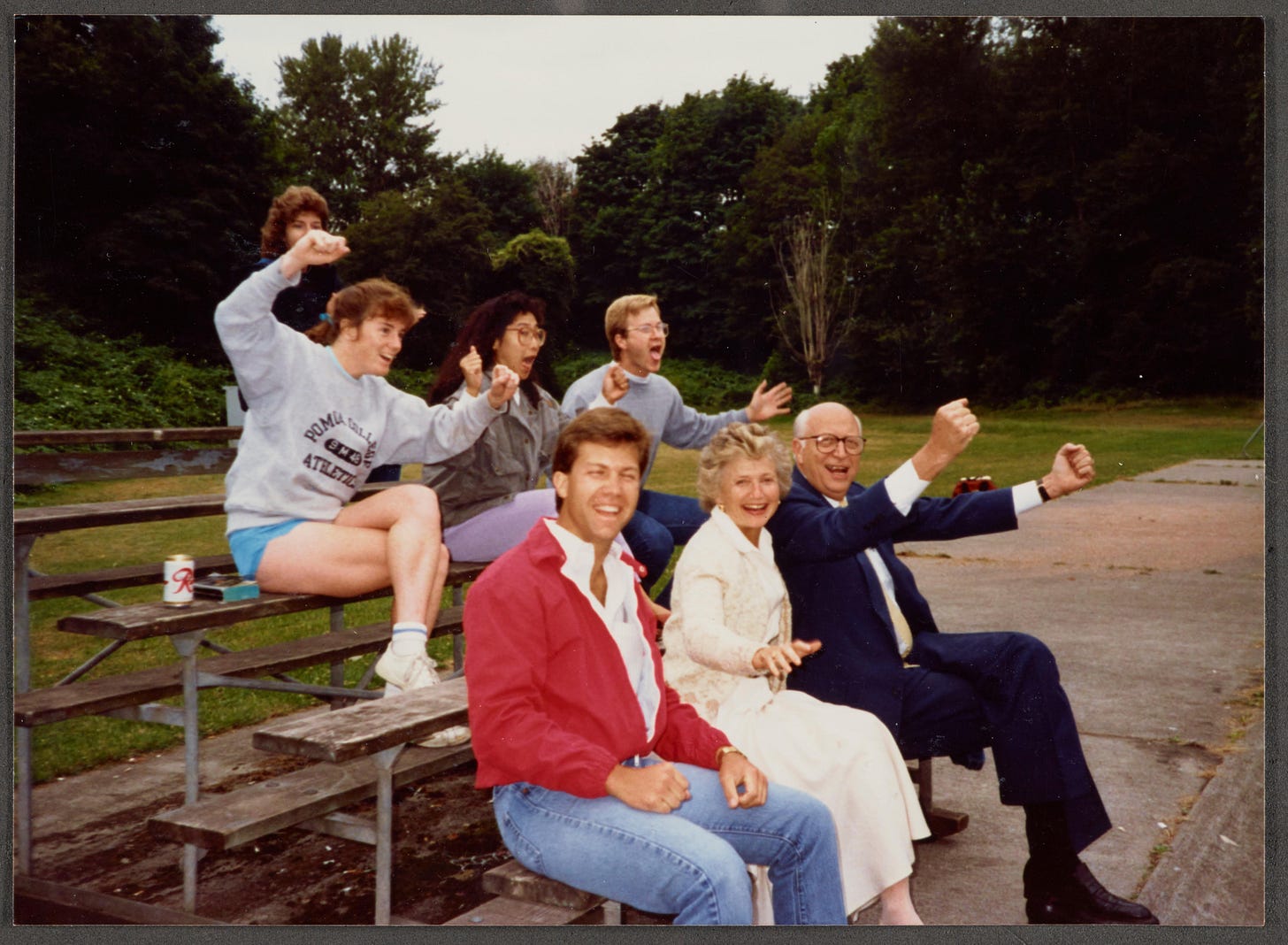
Bill understood that, sometimes, failure and fun weren’t just inseparable—you were glad they were intertwined. He once wrote: “I like the challenge of having to make decisions where there’s always a risk of failing. I find that exhilarating.”
Then again, there are limits. When he was describing the apparent “failure” in the psychiatrist’s office to several hundred strangers—it sure didn’t sound like he felt exhilarated at the time! More like hapless, or hopeless.
All the more reason for standing in awe of his wisdom, humility and courage…for having seen that the only way for him to lead—was to get out of his son’s way.
As I watched Bill Jr. explain to Charlie Rose and another interviewer how he “had to quit Harvard” and “had" to seize the opportunity presented by the introduction of the Altair computer in 1974, I thought: Here we go again: like father, like son. But actually it was the inverse: this time the son was leading the father, back in time…reminding his dad what it felt like to be an exhilarating leader…fully aware of the risk of failure…But also realizing the need to show up, and enter the arena…for better or worse…
As Father’s Day approaches, my mind turns to my own father, Tad…who was also an absolute ten-strike. Both Tad and Bill came from humble roots…served in Occupied Japan during the 1940s…went to college and then law school on the GI Bill…then, as they built very successful professional careers, all the while gave back…which made them beloved in their community. As Bill and Tad also both loved the game of golf…and passed at age 94…I’m confident they’re now always shooting less than their age, then enjoying the 19th Hole in the Sky.
I tip my hat to all of the wise, humble, and courageous fathers out there who realize that, sometimes, the best way to lead—is to get out of the way.
Sources & References
Showing Up for Life: Thoughts on the Gifts of a Lifetime; by Bill Gates Sr., with Mary Ann Mackin, Foreword by Bill Gates; 2009.
Thanks for Showing Up in My Life: Lessons We Learned From Bill Gates Sr.—A Collection of Stories and Letters from Bill’s Friends and Colleagues; privately published; conceived by Cathy Jones-Smith, edited by Dan Evans, Ed Lazowska, Susannah Malarkey & Marty Smith; 2015.
Numerous Zooms, conversations and email exchanges with Marty Smith, who worked closely with Bill Sr. for 40 years (and had the unenviable challenge of supervising me in 1985).
My own personal notes and recollections of my time working for, meeting with, or speaking with Bill, between 1985 and 2009.
Bill Gates Sr. talk during his Showing Up tour (sponsored by Chevy Chase Trust, and held at The Roundhouse Theatre in Bethesda, MD, April 28, 2009); and Chevy Chase Trust’s transcripts.
Several conversations and email exchanges with Stacy Murchison, Senior Managing Director at Chevy Chase Trust, who moderated the book talk (which I attended and, afterwards, reconnected with Bill); and Perry Hooks, of Hooks Books Events, who helped arranged the tour.
Bill Gates Sr. Whitman College Commencement Address, May 18, 2008.
Charlie Rose Showing Up interview of Bill Gates Sr. and Bill Gates Jr.; aired April 28, 2009.
Bill Gates Sr. talk during his Showing Up tour (at San Francisco's Commonwealth Club, on June 17, 2009, part of the Travers Ethics Series).
Bill Gates Sr. talk during his Showing Up tour (on The Takeaway podcast), June 4, 2010.
The Bill & Melinda Gates Foundation.
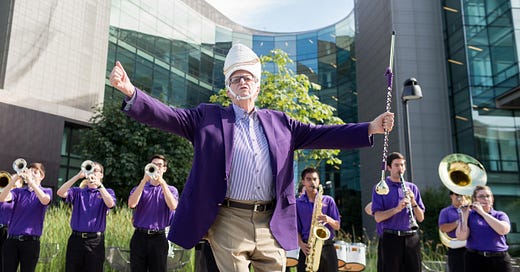



Wonderful highlight story by world famous pitcher Eric!
Great read Eric, thanks!